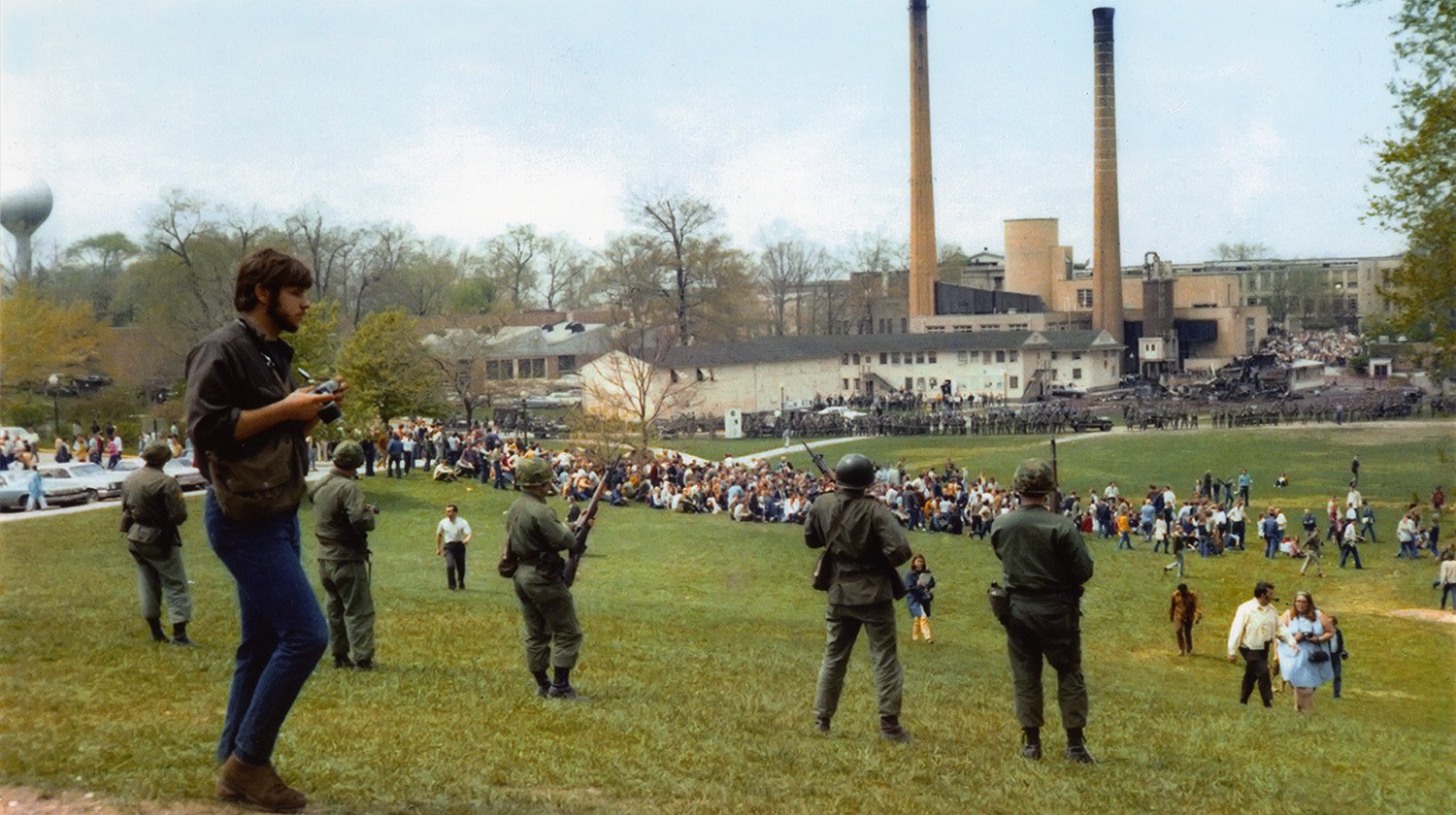By Dalton Lee, Baldwin Wallace ’11
Remembrance of the four victims.
Growing up in the city of Kent, Ohio, in my personal experience, can feel a bit surreal. Like the set of an idyllic 1950’s movie; complete with a bustling downtown, a university, a plethora of festivals and events, and comprised of a variety of sub-villages, each boasting a distinct personality. For my friends and I this was nothing short of a midwestern oasis. Each summer would go by in a meandering haze as we ran through the woods, swam in different lakes and quarries, and made the emptied campus our personal playground—only covering our bare feet when absolutely required. I’ve learned that describing this period of my adolescence can sound like a hit country-western song, but I assure you that if this is anything, it’s dulled down a bit from my actual experience. The bliss of youth can be blinding, any harsh realities or bad news seemed to wash just along the periphery of my acknowledgment. It wasn’t until the age of seventeen that I first registered the story of May 4th, 1970, in the city of Kent, Ohio. Although I’d heard the story many times, I’d never been able to let it sink in. With college looming, it is possible that I’d started to identify with the impacted demographic more. The more likely cause is that I could never accept that this hallowed ground, on which I’d spent many formative years, was soiled by one of our countries’ most tragic events.
Kent State Commons, May 4th, 1970.
April 30th, 1970, President Nixon announced that the U.S. had invaded Cambodia in an attempt to attack various Viet Cong headquarters. With widespread unrest regarding the War in Vietnam, students on campuses all over the country began holding protest the following day, May 1st, 1970. On the commons of Kent State University's campus, a peaceful protest was held at noon. Later that evening, what appeared to be a normal night quickly divulged into violent confrontations between students and local police. While the incitement of this incident is still up for debate, the result was Kent Mayor Leroy Satrom declaring a state of emergency and ordering all the bars to close early. Inciting the crowd further, Satrom called Governor James Rhodes the following day, asking for assistance. Fearing further damage to the city, Satrom and Rhodes brought the National Guard into the city of Kent and onto the campus. Arriving around 10:00pm on Saturday, May 2nd, the National Guard encountered roughly 1000 protestors surrounding the burning remains of the ROTC building. Throughout the sunny Sunday, May 3rd, morning the campuses had an eerie calm, but resembled an active militarized zone. That night saw more violent encounters between protestors and guardsmen. As words of a conclusion rally at noon on Monday, May 4th, spread, campus officials attempted to prohibit the protest. Nearly 3,000 demonstrators filled the commons, watched by roughly 100 armed guardsmen. Efforts to disperse the crowd were met with anger, as rocks and shouts flew from the protestors, tear gas flew from the guardsmen. As the guardsmen neared the top of Blanket Hill, 28 of the 70 men turned and fired their weapons. As many fired into the air or ground, some fired directly into the crowd. In just 13 seconds, around 61-67 shots were fired. In that 13 seconds, nine students were injured and four were killed. Jeffery Miller, Allison Krause, William Schroeder, and Sandra Scheuer lost their lives to members of the state’s own National Guard, on a college campus in Northeast Ohio. Jeffery Miller was a transfer student from Michigan State University, and while the details of his membership are unknown, had been an associate member of the Phi Kappa Tau Fraternity.
Reflecting upon this day as Kent native, Kent State alumnus, and brother of Phi Kappa Tau removes much of the wistful dreaminess from my hometown, but also demands an understanding of this event that changed our country. A college campus is meant to be a place of safety, fostering education, debate, discussion, and understanding. On this day in 1970, Kent State University’s campus was none of those things and more. While you might be tempted to celebrate this as Star Wars Day (May the fourth be with you) or just another Wednesday, I’d implore you to reflect upon the events that transpired today, which affected countless lives, a member of our own organization, and college campuses all over the country.
For a more detailed account of this event, and for further reading and information, visit the link here.


